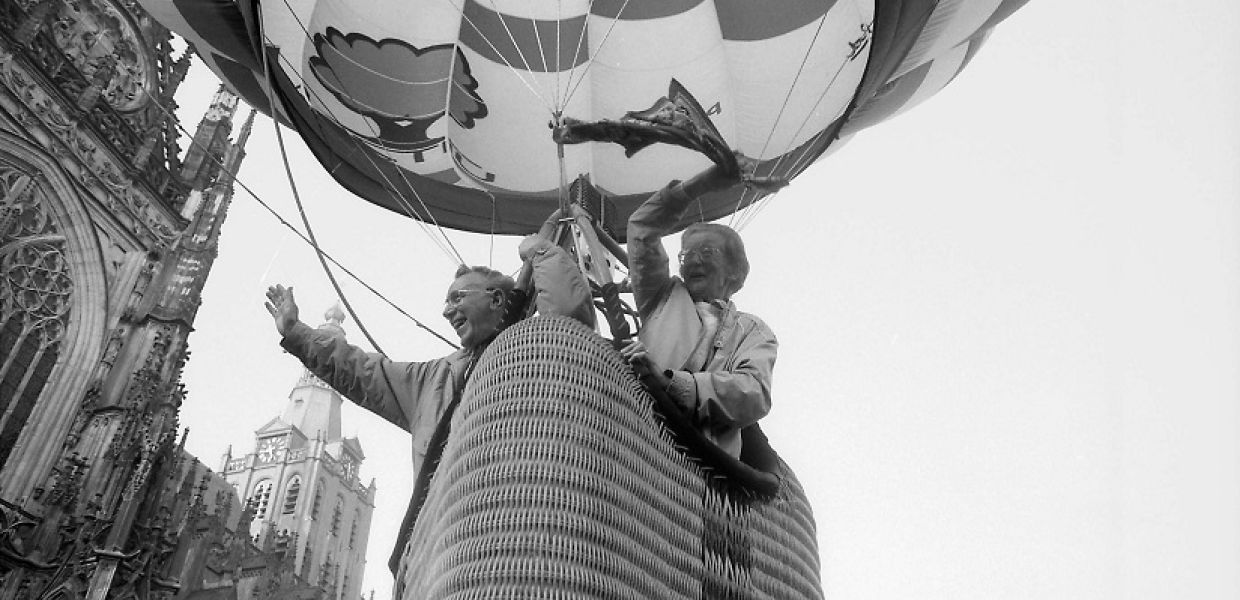Using Technology for Good — Europeana is in the NT100 2016 as a leader in the field
As many of you know I am very keen on a Cultural Commons and the role of Culture in our society, so I am particularly pleased to finish this year with news that Europeana has been named by the Nominet Trust as one of the 2016 NT100, the annual celebration of 100 inspiring tech for good projects from around the world. This is a real honouring of the work and efforts accomplished by many of you throughout 2016.
The Nominet Trust rewards innovative projects providing a better access to knowledge and education, and the fostering of understanding in society. These values relate strongly to those of Europeana where promoting the richness and diversity of our shared European cultural heritage for the benefit of all, through digital technology is at the heart of our mission. Being thought of as a leading innovator in the field is recognition of the vision that the European Commission (EC) and the Member States (MS) had in establishing Europeana. A vision recently reinvigorated by Council Conclusions which renewed the commitment of MS, and the CEF funding which might well get us to the next decade.
This award is also a recognition of the work of our stakeholders and partners whose work contributes at so many different levels to bring our shared ideal of open and accessible cultural heritage to life.
Cultural Heritage Institutions, believing in the dream to create universal access to our shared cultural heritage, have striven to improve their content this year by doubling the amount of tier 2 material available and so providing more opportunities for people to find and view it through Europeana, e.g. through our thematic collections, of which more later. This was helped by MS and their museums and libraries each delivering up to 10 high quality, open pieces of art for the successful Europeana280 campaign.
That campaign furthered our ambition to use technology to connect people directly with their shared cultural heritage by bringing art to the streets with #BigArtRide and #JumpingJacks. And we also held our first Europeana 1914-1918 Transcribathon, crowdsourcing the greater use of diaries and letters from WW1 and directly engaging people with their past.
Use by the creative industries demonstrates the possibilities for innovation opened up when we bring technology and culture together. This has been underpinned by our challenges, awarding funding to good ideas using Europeana material helped by our partners Platoniq and Media Deals who delivered co-creation and investment services.
Helping to make this this public facing work possible are the taskforces and working groups of the Europeana Network Association. Their volunteering in areas such as copyright, IIIF, standardization, multilingualism and search improvement makes national patrimonies discoverable and reusable including in Education and Research creating more equal access to knowledge and fostering, we hope, understanding in society.
Not forgetting our wonderful Board who have helped us to refine strategy, own our position consequent to Council Conclusions and keep us on the straight and innovative path.
And of course none of this would happen without the Europeana office – a team who have successfully established a way to bring people together, according to their interest, with the introduction of thematic collections: Europeana Art and Europeana Music. A team who have brought Europeana Radio to life, who work towards making life easier for others by working on the data or with the delivery of continuous publication and innovation in the ingestion of cultural heritage data. A team that is responsible for new partnerships with Ministries of Education or Arts+ at the Frankfurt Book Fair or showing new ways of seeing our heritage via GifitUp or our Faces of Europe exhibition. A set of people who continuously look to improve our infrastructure, interoperability, quality of the data, search, user experience and services so that society can benefit from Europe’s rich cultural heritage. People who keep Europeana running even when our hosting provider suffers catastrophic failure.
Demonstrating the societal impact of our work beyond numbers the Impact Framework adds to our other frameworks on copyright, publishing and our DPLA joint venture on Rightsstatements.org, putting some ‘science’ to the recognition that this award gives us and doing it in an easily digestible video: Workers Underground.
Keeping the dream alive is one thing, but we also need to share it with others and spread the word as much as possible - digital technology helps us to do that.
Together with the Marketing & Communications team in Europeana the #AllezCulture working group Network members enhanced awareness about Europeana with enthusiasm using the tagline I am @Europeana. During April and May people were asked to find and share their cultural hero or heroine via Twitter, encouraging both organisations and individuals to interact with our content and resulting in 10 million impressions on social media.
And sharing Europeana content online in the places where people work and play has resulted in 175 million views this year - almost double 2015’s figure - demonstrating that our goal of providing better access is not just a dream, we are making it a reality.
So counting down to Christmas a big thank you to all of you who have helped transform the world with culture this year, you deserve this recognition!
Find out more about NT100 and the 99 other nominees on socialtech.org.uk.
#AllezCulture!

